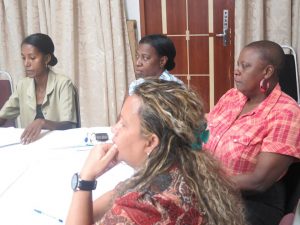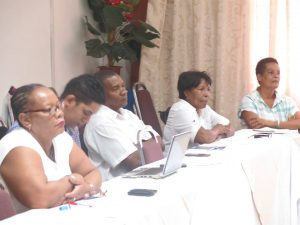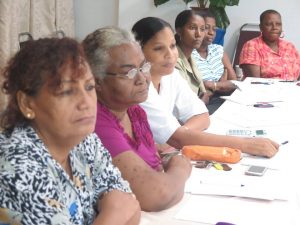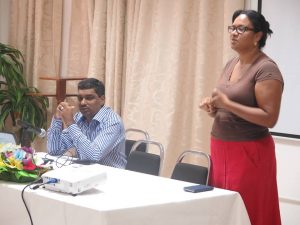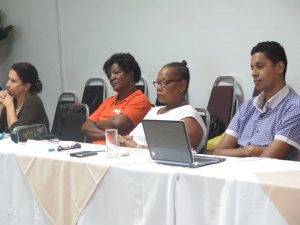26th June 2015
Programme Performance Based Budgeting introduced to CEPS.
A session has been held at the Citizens Engagement Platform Seychelles to introduce the Programme Performance Based Budgeting (PPBB). The session was facilitated by the Resident Advisor in the Seychelles’ Ministry of Finance, Mr Dan Narainsamy. It is the Seychelles Government that is implementing the Programme Performance Based Budgeting.
This form of budgeting was introduced in Seychelles in the form of a pilot programme in 2014, where the Ministry of Health and Ministry of Education were selected to plan their 2015 budget according to the programmes that they would be implementing. Three other Ministries are now part of the pilot project for the 2016 budget. The Seychelles Government has opted to introduce the PPBB to its various Ministries in phases, planned out over a 3 year period. Therefore by 2017 all of the Government Ministries will be preparing their budget according to the PPBB.
Moving in line with Government way of budgeting, the CEPS Board decided that CEPS Secretariat and accredited members, be introduced and become familiar with this form of budgeting. CEPS receive its administrative budget from the Government. CEPS’ budget needs are focused on its administrative programmes as well as policy engagement and programmes that it will be implementing as the new platform for civil society in Seychelles. Whereas Civil Society Organisations (CSOs) also request for part of their budget through the Seychelles Ministry of Finance. When budgeting according to the PPBB, each NGO will now have to have its own service delivery programme structure put in place and have in place a strategic plan.
Currently in Seychelles the budget system being applied is “Line item budgeting”. Through this format, a ministry or organisation presents its budget based on what is needed, its quantity and cost for the budgeted year. These might include purchasing, salary etc. Through this form of budgeting, the focus is placed on what is required to deliver the services.
Unlike the current system of budgeting, the PPBB ensures that the ministry or organisation budget according to what the funds will be used for. The process involves identifying not only the costs, but also inputs, activities, outputs, outcomes and the impact the programme has on society.
The outputs can then be measured. This in itself guarantees transparency in the budgeting process and also ensures accountability. The end result is more efficiency and effectiveness of services. The PPBB budget is prepared by programmes to be implemented; therefore budget applicants will need to establish a programme structure. The PPBB also ensures that the applicant budgets for a 3 year period.
Over ten CSOs participated in the introductory session this morning along with CEPS Board members and staff of the secretariat. Mr. Narainsamy explained that to implement this form of budgeting, it has taken the five pilots around 18 months to work on their own PPBBs.
Mr. Narainsamy have advised that the best approach to implementing this form of budgeting is to learn from the various processes and not to adopt a theoretical approach to its implementation.
He also advised that concerned parties relook at the strategic plan and that CEPS put in place capacity building programmes to help members draft their own PPBBs.

